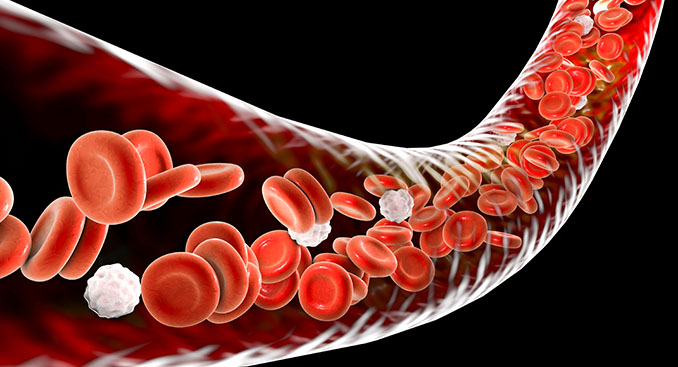An Accurate, Convenient, Beta Thalassemia Test Could Help Couples Make Informed Reproductive Choices, Ensure Appropriate Maternal Care, and Facilitate Diagnosis in Infants
(February 5, 2024 – Portland, Ore., and Mumbai) A clinical study to validate the beta thalassemia (beta-thal) diagnostic capability of the Gazelle™ Hb Variant Test, published in the journal Biosensors, showed that Gazelle correctly identified participating subjects with beta-thal major, beta-thal intermedia, and beta-thal trait with a combined accuracy of over 99% compared with the laboratory gold standard--high performance liquid chromatography (HPLC). This study concluded that Gazelle provides, for the first time, an affordable and rapid solution for identifying beta-thal at point of care.
The ability to test accurately and rapidly (results are available in 8 minutes) as demonstrated in this study suggests that Gazelle is suitable for large-scale testing of beta-thal at point of care. The affordability and convenience of a point-of-care test would make it easier for millions of couples to make informed reproductive choices, ensure appropriate maternal care, and facilitate diagnosis in infants.
Beta thalassemia is an inherited blood disorder. Patients with the most severe form of the disease, beta-thal major, may require life-long transfusions for survival. Most people with beta-thal trait do not know they have it or do not realize that they may have a child with disease if their partner also has trait. A study published in the European Journal of Hematology has shown, however, that incidence rates decrease in areas with screening and education programs.
“Beta thalassemia can be a very serious disease that often goes undetected before it is too late in India and many other parts of the world,” said Tulika Seth, MD, Founding Trustee and Professor of Hematology at All India Institute of Medical Sciences, New Delhi. “Young adults especially need to understand their status before marriage since they may carry the trait.”
The Gazelle Hb Variant test can identify 19 hemoglobinopathy conditions including beta-thal disease and trait and sickle cell disease and trait. The Gazelle in vitro device costs about the same as an iPhone and individual tests are low cost. The sensitive detection and precise quantification of variants allows Gazelle to identify beta-thal disease or trait in babies as young as six months, and sickle cell disease and trait in newborns as early as 37 weeks gestation
The newly published study was conducted on 372 subjects and on 30 blood samples prepared to represent untreated beta thal intermedia and major in Ghatkopar, Mumbai, India. Compared with the results reported from the laboratory standard test HPLC, Gazelle identified subjects with beta-thal major and beta-thal intermedia vs normal subjects with 100% accuracy. Additionally, Gazelle identified subjects with beta-thal major/intermedia vs subjects with beta-thal trait with 100% sensitivity and specificity. Sensitivity and specificity for identifying subjects with beta-thal trait versus normal subjects were 100% and 98.3%, respectively.
“By combining accuracy and affordability with on-site accessibility, Gazelle can make a significant impact in areas of the world with high prevalence of beta thalassemia,” said Patti White, CEO of Hemex Health. “Before Gazelle, lab-based, high volume batch testing, with its slow turn-around time, was the best option. With Gazelle, young adults can be conveniently tested at primary care centers or even at screening events at schools or other community centers.
Hemoglobin (Hb) disorders are among the world's most common monogenic diseases. Globally, approximately 1.5% of the world population carry beta thalassemia, affecting 40,000 newborns every year, according to a study published in the Mediterranean Journal of Hematology and Infectious Diseases. Over 90% of patients with beta thalassemia live in low-and-middle resource settings including Africa, Middle East, Southeast Asia and Southern Europe where access to affordable testing is limited, according to Disorders of Hemoglobin: Genetics, Pathophysiology, and Clinical Management.
About Gazelle
Gazelle is a compact, rugged, battery-operated in vitro diagnostic device. It is used inexpensively by entry level healthcare workers in areas with limited access, resources, or electricity. Patient information and results are captured digitally for storage, printing, or later transmission. Gazelle is approved for identifying sickle cell disease and beta thalassemia in a growing list of countries and integrates miniaturized versions of trusted technologies, innovative optics, and artificial intelligence. This versatile approach allows the company to continually add diseases to its menu of tests and expand to new users. Gazelle is an accurate and rapid digital platform that can work just about anywhere in the world. More information about Gazelle is available at https://hemexhealth.com/products.
About Hemex
Hemex Health breaks traditional barriers with its innovative diagnostic system that expands the potential of diagnostics for important conditions, making accurate tests accessible to new locations and new populations. Hemex Health designs diagnostic technologies for the real world by listening to the needs of healthcare providers including those in some of the most remote and challenging settings. The Gazelle technology was developed in collaboration with Case Western Reserve University. Hemex Health is in Portland, Oregon, U.S.A. More information can be found at www.hemexhealth.com.

 The published study reflects a breakthrough that we believe will lead to improved maternal care and help many more patients - including infants - through affordable, rapid, point of care testing.
The published study reflects a breakthrough that we believe will lead to improved maternal care and help many more patients - including infants - through affordable, rapid, point of care testing. 










.jpeg)



.jpg)





.jpeg)

.jpg)





.png)

